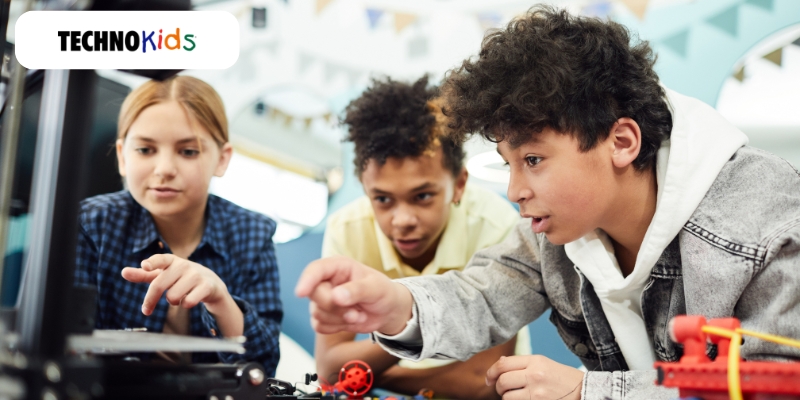Project-Based Learning (PBL) is an innovative educational approach that emphasizes hands-on experiences, enabling learners to gain a comprehensive understanding of concepts rather than just theoretical knowledge. Unlike traditional learning methods, which often focus on rote memorization, PBL fosters critical thinking, creativity, and real-world problem-solving skills.
Key Benefits of Project-Based Learning
Humans learn best by doing. Our brains naturally process and apply new information through experience. This is why the benefits of project-based learning are so significant—it aligns with how we naturally absorb knowledge. Engaging in activities such as reports, group projects, and interactive assignments enhances learning, making it both meaningful and enjoyable.
Encourages Interdisciplinary Learning: PBL requires learners to integrate knowledge from multiple disciplines. Whether solving complex problems, conducting experiments, or designing models, students develop a comprehensive skill set that goes beyond isolated subject areas. This interdisciplinary approach is one of the core benefits of project-based learning, as it mirrors real-world problem-solving scenarios.
Develops Critical Thinking & Problem-Solving Skills: Real-world challenges demand analytical and creative thinking. By engaging in projects that require independent thought, students strengthen their ability to assess situations, think critically, and develop innovative solutions. One of the key benefits of project-based learning is that it nurtures a problem-solving mindset that is crucial for both academic and professional success.
Enhances Collaboration & Communication: Many PBL activities, such as debates and group projects, simulate workplace environments. These experiences help learners refine their ability to articulate ideas, work in teams, and present solutions effectively—essential skills for professional success. This is one of the most valuable benefits of project-based learning, as it prepares students for real-world career settings.
Boosts Engagement & Motivation: Traditional learning methods can sometimes feel abstract and detached from real-life applications. One of the key benefits of project-based learning is that it makes learning more relevant by allowing students to see the impact of their work firsthand. This hands-on approach fosters curiosity and enthusiasm, leading to better retention and deeper learning.
The Role of Technology in Project-Based Learning
The digital era has revolutionized education, expanding the possibilities of PBL. Technology-driven tools allow students to personalize their learning experiences, explore simulations, and collaborate on projects in ways that were previously impossible.
The flexibility of PBL ensures that students can explore topics based on their interests, eliminating common learning barriers like lack of engagement or comprehension difficulties. By incorporating interactive platforms and digital resources, educators can maximize the benefits of project-based learning for all students.
A Hands-On Approach to Learning
Consider this scenario: If you’re told that two chemicals react in a specific way, it might not spark much curiosity. But if you’re given the opportunity to mix those chemicals yourself, suddenly, the lesson becomes exciting and tangible. This is the power of experiential learning—it transforms passive knowledge into active discovery.
By engaging in practical applications, students develop essential skills that extend beyond academics. They learn to think critically, experiment with solutions, and gain confidence in their ability to tackle real-world challenges. These real-world applications highlight the benefits of project-based learning, making education more impactful and meaningful.
The benefits of project-based learning go beyond academics—it’s a powerful educational strategy that nurtures creativity, collaboration, and critical thinking. As technology continues to evolve, PBL will play an increasingly vital role in preparing students for future careers.
By fostering an interactive and engaging learning environment, educators can ensure that students not only acquire knowledge but also develop the skills necessary to thrive in a complex and ever-changing world






Recent Comments